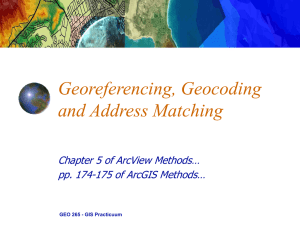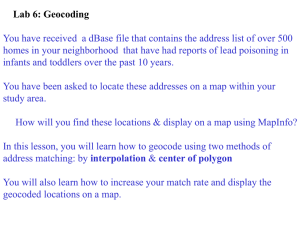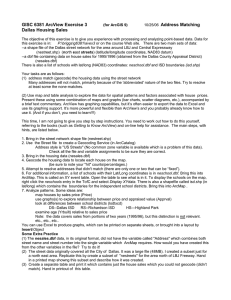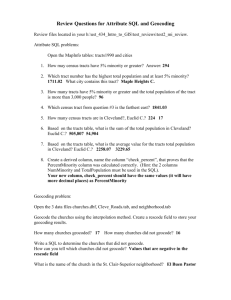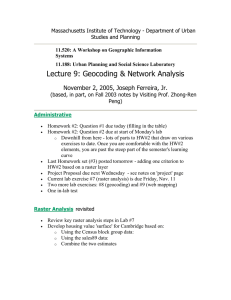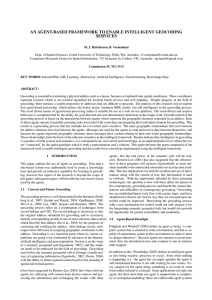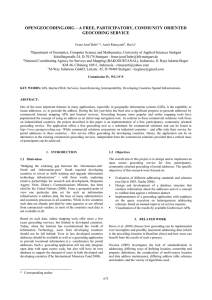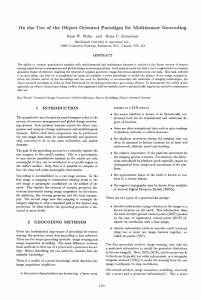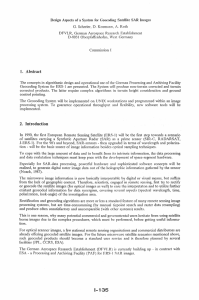Uses of and Experiences with Address-Based Sampling - dc
advertisement
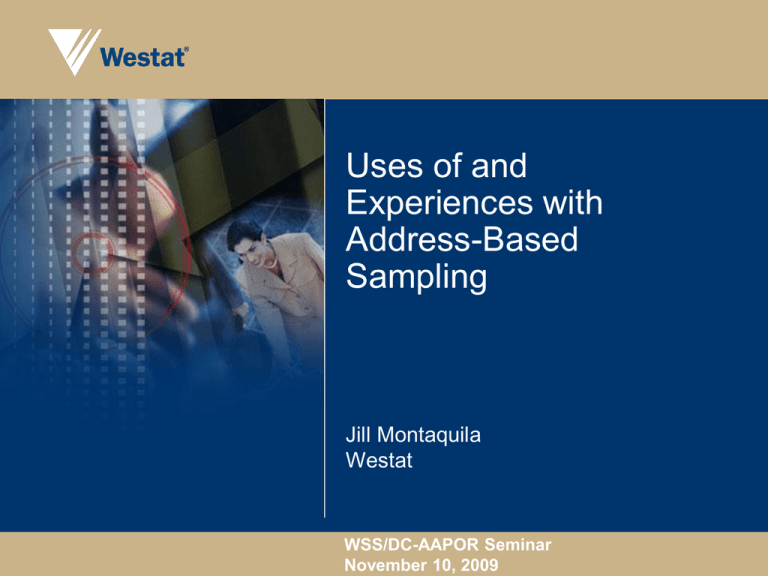
Uses of and Experiences with Address-Based Sampling Jill Montaquila Westat WSS/DC-AAPOR Seminar November 10, 2009 Overview • Uses of address-based sampling • The United States Postal Service (USPS) Delivery Sequence File (DSF) General information Issues and considerations • Discussion 2 Uses of USPS-Based Address Lists • Declining random digit dial (RDD) telephone survey response rates and coverage rates in the late 1990s into this decade Use address-based sampling frames in place of RDD (with change in mode). • Improved geocoding databases and E-911 address conversions allow for more complete and accurate placement of addresses Use geocoded addresses in place of traditional listing in multi-stage area probability samples. 3 Uses of USPS-Based Address Lists • Westat’s experiences with the USPS-based address lists include: Single-stage samples: Using USPS-based lists as sampling frame, in some cases, in lieu of RDD Multi-stage samples: • Evaluations of their potential use in lieu of traditional listing • Quality assurance of the traditional listings • To obtain counts used to update measures of size 4 The USPS Delivery Sequence File • Can be used to obtain lists of residential addresses, nationally or for restricted areas State ZIP code Census tract (not all vendors) ZCTA • USPS-based address lists are maintained by vendors; quality of these lists and services provided vary 5 Issues/Considerations • Issues/considerations include: Coverage P.O. box, rural route (RR), and highway contract (HC) addresses Drop point (multi-drop) addresses Multiplicities Geocoding errors Appending other information • In some cases, these are inter-related 6 Issues/Considerations: Coverage • Factors affecting coverage: Vendor “ownership” of ZIP codes: No addresses for ZIP codes the vendor does not “own” Vendor updates do not necessarily coincide with USPS updates (lag time) P.O. box addresses: When area identification is necessary, P.O. box, rural route, and highway contract addresses may be problematic due to inability to geocode Inability to geocode (e.g., because street is not in street database used for geocoding) Geocoding errors 7 Issues/Considerations: Coverage • In a recent study (Montaquila et al., 2009, Proc. SRMS ), conducted in 7 PSUs (mainly single counties), coverage of the USPS-based list (relative to traditional listing) was found to range from 50 percent to 96 percent. • Coverage is: Generally higher in urban areas than rural Generally lower in areas with higher rates of new construction • Quite a bit of variation within PSUs (at segment level) 8 Issues/Considerations: P.O. Box, RR, and HC Addresses • May affect coverage due to geocoding issues • In a recent ABS selection, about 11 percent of addresses were P.O. box or rural route • Special considerations depending on mode: Ability to locate for personal interviews Issues for special delivery service (e.g., FedEx) in mail surveys 9 Issues/Considerations: Drop Point (Multi-Drop) Addresses • A drop point is a single address that serves as a delivery point for more than one residence. • Drop points may be flagged, and the number of drops indicated, on files provided by vendors. • In a recent ABS selection, fewer than 1 percent of addresses were drop point addresses. However, the number of drops ranged as high as nearly 400 (with a mode of 2). 10 Issues/Considerations: Drop Point (Multi-Drop) Addresses • Handling of drop points: Account for number of drops in determining probability of selection of the address Need approach for subsampling • Personal interviews: Can specify approach for subsampling • Telephone interviews: Matching of telephone numbers may be ambiguous • Mail: Recipients self-select 11 Issues/Considerations: Multiplicities • Households may have multiple chances of selection, e.g.: Households with summer/winter homes Households that receive mail at both street address and P.O. box • To accurately compute household’s probability of selection, need question to ascertain means by which household receives personal mail • With seasonal homes, could apply residency rules (implicitly or explicitly) 12 Issues/Considerations: Geocoding Errors • Databases used for geocoding may be incomplete/inaccurate • Inability to correctly geocode may affect coverage or operational efficiency of sample • When constructing frames for a small (sub-state) geographic area, need to decide on approach: Treat any address that geocodes into the area as eligible; addresses that geocode to a location outside the area are ineligible Cast a wider net and keep only those addresses that are truly located within the designated area 13 Issues/Considerations: Appending Other Information • For an ABS sample, vendors may be able to append: Telephone number (for national samples, can append to about 60 percent of sampled addresses) • Need to confirm address: In 2007 study, about 28 percent of matched cases were found to be associated with nonworking/nonresidential phone number or incorrect address. Name • Mail may be undeliverable if name is mismatched • If mail is deliverable, named person might not be the “right” household respondent Other demographics, etc. 14 Discussion • “Perfect storm”: Decline in RDD response rates and landline RDD coverage rates Availability of USPS-based address lists through vendors Improved geocoding databases Roll-out of E-911 addressing • “The devil is in the details” • Still much that is unknown; need for methodological research 15 Contact Information Jill M. Montaquila 1600 Research Blvd., Room RE 482 Rockville, MD 20850 jillmontaquila@westat.com 16


